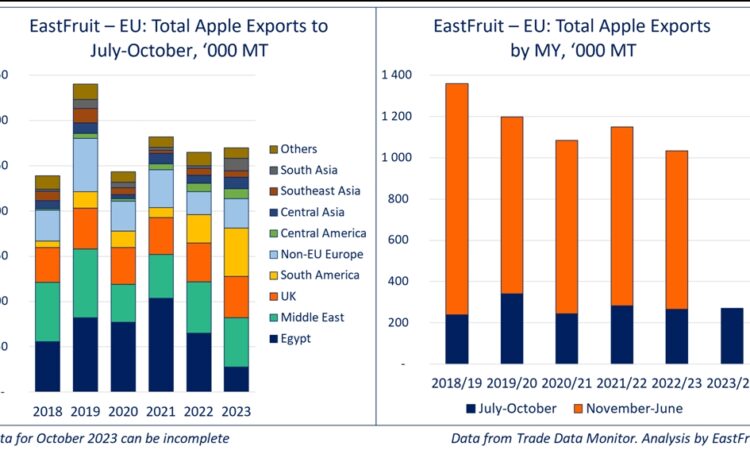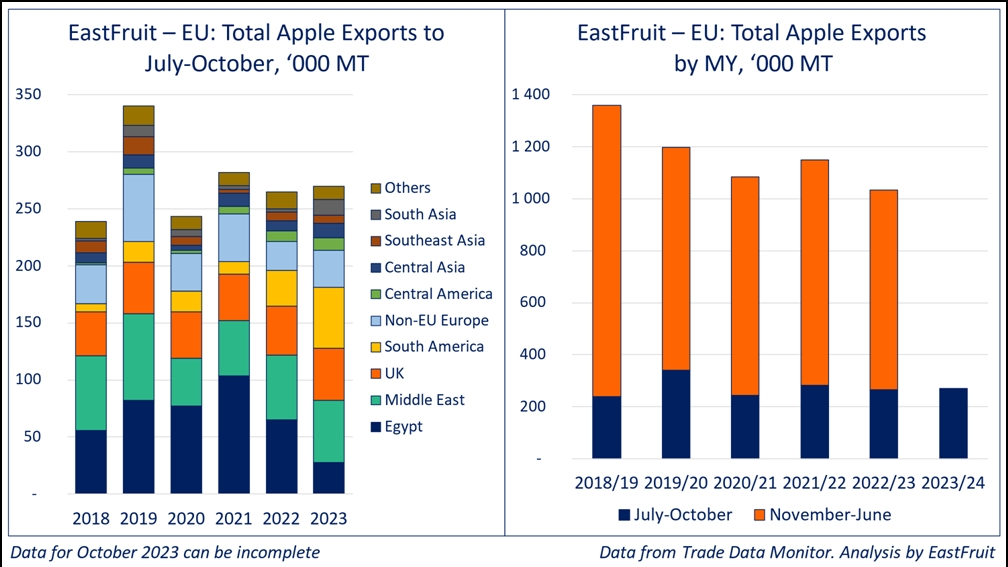
Egypt’s Apple Imports from EU Plunge Amidst Economic Struggles and Red Sea Blockade

Amidst a tumultuous economic landscape and the blockade of logistics in the Red Sea, Egypt has witnessed a precipitous drop in apple imports from the European Union (EU). In the initial four months of the 2023 marketing year, which runs from July to October, the nation registered a mere 28 thousand tons of apple imports. This figure marks a 60% decrease from the previous year and is only a quarter of the volume recorded in 2021, making it the lowest in at least six seasons.
Unraveling the Factors Behind the Plunge
Egypt’s economic hardships, accentuated by the devaluation of the Egyptian pound in 2022-2023, have significantly contributed to the decline in apple imports. The country’s food crisis and the blockade of logistics in the Red Sea by Yemeni Houthis have further aggravated the situation. The blockade has not only disrupted Egypt’s orange exports to Asia but has also led to a halt in harvesting by Egyptian farmers due to the anticipation of a potential price crash.
Implications of the Blockade on Egypt’s Economy
The blockade’s ripple effects extend beyond the agricultural sector, threatening to dent Egypt’s currency inflows by reducing revenues from the transit of ships through the Suez Canal. However, the blockade’s impact on the EU’s apple export market has been significantly less pronounced.
EU’s Apple Exports Remain Stable Amidst Challenges
Despite the dwindling demand from Egypt, the EU managed to maintain a stable apple export market. Between July and October 2023, the EU chalked up a total export of 270 thousand tons, a figure that surpasses the previous year’s records. The EU offset the decrease in demand from Egypt by amplifying its apple exports to South America, non-EU European countries, and Asia. Countries like Brazil and Colombia marked significant increases in apple imports from the EU, with growth rates of 50% and 70%, respectively. The UK and Switzerland also witnessed an upsurge in apple imports, with the former emerging as the main buyer.
In the Asian market, the EU reinforced its position in traditional markets such as the UAE and Saudi Arabia. A poor harvest in India led to a ninefold increase in apple exports to the country, while Kazakhstan and Mongolia also registered an increase in imports.






